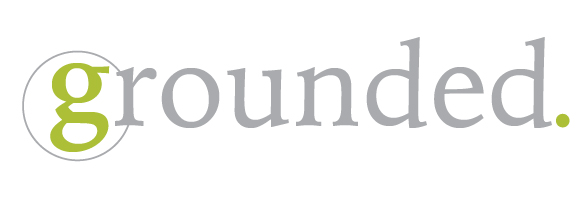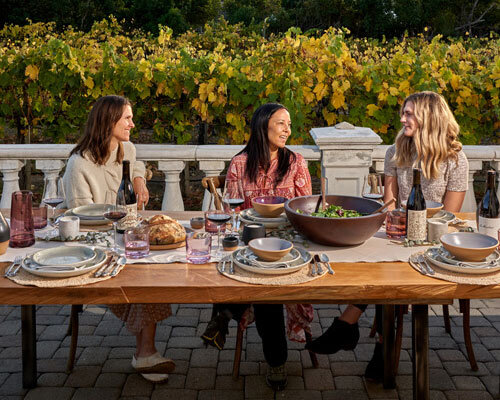To me, the idea of “Self-connection” is another way to describe Spirituality. And once we understand Self-connection on a deep level it connects us to something deeper than our individual physical existence which opens an enormous, magical way of existing in the world.
In my daily life it plays out in the form of as many things I can possibly throw together to strengthen my Self-connection: meditation, a physical yoga practice, exercise that keeps me present in my body, foods that keep me grounded in my body, intentional moments of connection to other people or the environment. Our modern world seems designed in almost every way to move us away from this type of Self-connection, so these practices serve as my resistance to that.
How do you coach clients seeking to create a spiritual practice? What does that look like in a coaching relationship?
I try to work with the client to suss out their personal vision of what spiritual connection looks like. Many people think they have to have a meditation practice to be spiritual. But if sitting for meditation does nothing for that person, I’d argue that that is not the appropriate avenue to them establishing a spiritual practice at the moment. Maybe they feel most deeply connected to Self when they’re cooking, and taking the perspective that their time cooking is their spiritual practice is the key. Or maybe they love long walks and learning to treat that walk as a spiritual practice is what makes sense.
Can you share 3 things readers can do now to create a spiritual practice in their own lives.
Ask yourself when you feel most present in your everyday life. What are you doing, where are you, how does it feel?
Apply intention to doing that thing regularly, and treat it as your spiritual practice.
Take small steps towards studying spiritual practices more deeply. Maybe you love going to yoga class in a studio, so you look for a book that helps you understand the origins of postures a bit more thoroughly. Maybe you’ve grown up as part of a traditional religion, and you seek out a deeper understanding of some of the spiritual practices (remember: the things that develop your relationship to yourself). Maybe you love being in nature and you explore something like forest bathing. I think the key here is to push yourself into slightly unknown spiritual territory every so often, and to be open to what you learn.
You wrote two very beautiful, personal essays for Medium describing your relationship with depression over the past three years. Can you share some of the most powerful lessons you’ve learned from your experience which may help others living with depression and/or the emotional fallout of COVID-19.
First and foremost, I think I learned that all of us may/will experience depression.
Second, I learned that depression alters our set point. It basically resets your baseline to a place that’s much heavier, darker, and pessimistic than a more “normal” baseline. In my experience that didn’t mean I had to live there all the time, but that I was starting there and constantly having to fight out of it—which was often impossible—to experience a level of enjoyment or motivation that previously came effortlessly.
Third, I learned that although my everyday “healthy habits” couldn’t make the depression go away, they were the thing that gave me a fighting change to face it through other methods (therapy, and circumstantial life changes that came as time passed).
In our conversations together, you told me that one of the most powerful things you have given yourself is a daily practice. What is a daily practice?
To me, a daily practice is intention activity that bolsters the relationship we have with ourselves. It goes back to what we discussed earlier about having an open and honest line of communication with ourselves, which is the foundation of a healthy relationship to Self. So a daily practice is any activity we do everyday that contributes to the maintenance of this communication and relationship.
How can someone develop a meaningful daily practice?
Start simple. Find something in your day that makes you feel connected to yourself. It should be something that’s yours—not something you have to do for someone else, or something you feel obliged to do. Then do that thing everyday, make a point of it.
What can they expect from committing to a daily practice?
I think this will be different for everyone. I find a sense of accomplishment, a renewed sense of safety with myself each day, and a daily revival of curiosity about myself and the world.
What are you up to now?
I’m back in the startup world at an education company called On Deck, working on the Experience team. I help entrepreneurs make the most of their experience in our programs so they can build amazing companies.
How are you finding time for self-care and connection now that you are back to work in a more traditional 9-5 job?
It’s truly an everyday challenge, one that I take very seriously! For starters, I’m really organized with my time. I make sure to create space in the morning for exercise and personal things. Meditation is (more than ever) imperative for me first thing.
I’ve had to move some things around to account for the way my mind is occupied in a different way with fast-paced operational work. For example, I used to listen to a podcast during lunch. Now I find that placing my podcast in the morning with my coffee helps keep my mind off of what I need to do work-wise before I dive into the day. Movement serves as a more suitable break in the middle of the day, to get me up and force my mind into a different place. I’ve started doing quick one-mile runs in the middle of the day.
I’ve also started to plan out fun dinners to make on weeknights, and I try to really step away once I’m into that part of the evening. I’ve needed to implement meditation at night as well, because otherwise my mind has a really hard time slowing down enough for me to fall asleep.
Where can people find you and learn more about your services?
My website or on social!







